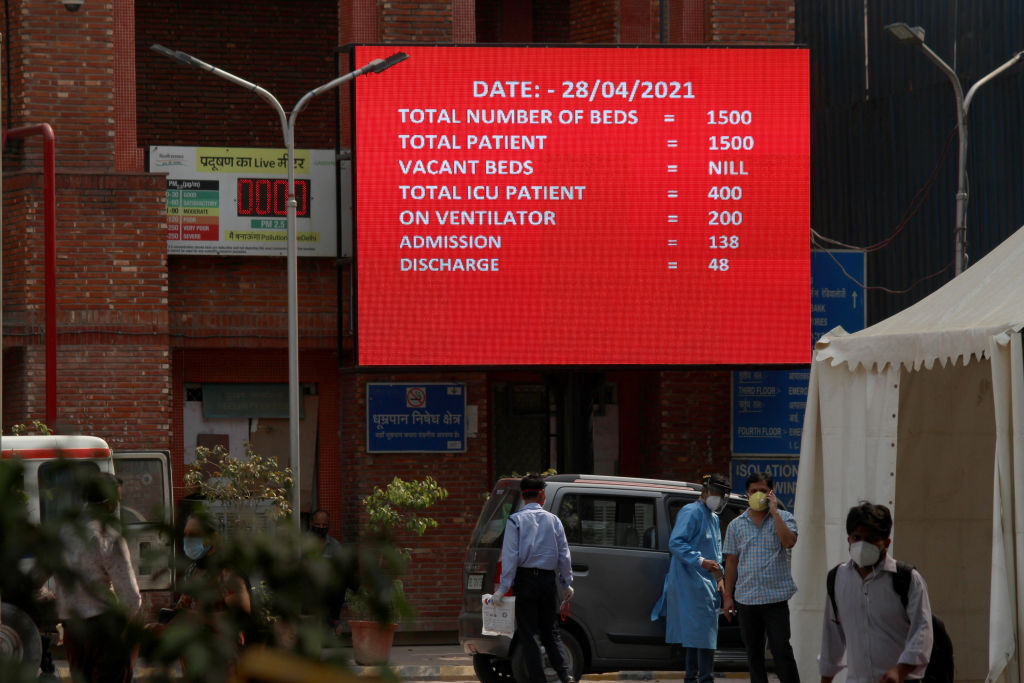On April 18, as India’s national capital was running out of hospital beds, and Twitter was flooded with #SOSDelhi tweets that would soon become familiar, college freshman Anuradha Malik, 18, saw an Instagram story linking to a volunteer form. The next day, as Delhi went into lockdown again, she was added to a Whatsapp group. (Anuradha and the other volunteers asked to use a pseudonym, citing concerns for their safety.)
Many such groups, on platforms like Discord, have sprung up, populated mostly by students or young professionals who felt they had to do something. In Bhopal, Madhya Pradesh, Aminah, 20, has been getting tips from her father in the state Health Department and sharing leads on a Bhopal support group for the past three weeks. Since it’s the month of Ramzan she wakes at 3 am for Sehri. “Usually we used to sit and talk, eat something, feel good, but these days I’m on my phone because I get requests at night as well which I’m not able to check. I sleep at 5 after addressing some needs and then I’m up and on my phone again by 11 am,” she says. “Sometimes I don’t even get up or shower before I’m on calls for oxygen.” Aminah wishes she could be part of volunteer groups on the streets—all “boys.”
“I feel chalo, if not physically, I am 24×7 on my phone.”
As a recent viral tweet phrased it, referencing a popular retort to critics of Prime Minister Modi: “If not Modi then who?” I would rather vote for that 22-year-old Priya on Instagram who’s verifying oxygen cylinder leads for strangers so they do not die of shortage.
The group Anuradha joined assigned case managers to patients, and was run by administrators associated with various civil society groups. She was greeted with guidelines and spreadsheets listing resources — ambulances, testing, medicine, oxygen cylinders, hospital beds— that needed to be called and verified before linking families. From Monday through Friday Anuradha worked on her laptop at her old wooden study table until 12:30 am, hiding what she was doing from her mother. Her father, an army officer, is stationed in Rajasthan.
By midweek she started avoiding making calls, moving only to scouring social media for influencers posting resource-leads. “It was too disheartening to call hospital after hospital, and find no one picking up or that nodal officers had switched off their phones, and the patient would die” Anuradha says. She took breaks to calm herself down, playing Plants vs Zombies, playing her synthesizer — or for periods of time, just staring at her own face in the mirror. “Till 23rd, Friday I tried to actively look for ICU beds. Then I started telling families, ‘Listen I have homecare numbers or, If you can take them to Mohali (in neighbouring Punjab) please go there — there is nothing in Delhi.’”
The Delhi government COVID-resource website includes availability of hospital beds, but is outdated as things can change every 15 minutes. For places like Lucknow or Allahabad in Uttar Pradesh, Patna in Bihar, or Ranchi in Jharkhand, all of which Anuradha tried resourcing for, things are worse, she says. On Friday, she woke at 10:30 am barely in time for online class. “I tried to engage but I hadn’t done any homework and wasn’t interested.”
At 5 pm during a Facetime break with her boyfriend, Anuradha found herself “randomly crying” mid-conversation. “I kept saying I’m fine, but I also kept crying.” The next day U.P Chief Minister, Yogi Adityanath declared that police would seize the property of “rumour-mongering” “anti-social elements” asking for oxygen. After the call, Anuradha went to the kitchen to assist her mother with cooking, and then “I just wept and wept. I couldn’t hide it anymore.”
Volunteers have also recently been getting threatening calls by individuals claiming to be the police. For Sharmin, 26, in Delhi all days are the same. As someone who falls into a “case manager” category, she has been working to find resources for working-class people who have “always been failed by the system.” This week she’s had to find resources for her own relatives in U.P. “Yesterday I called every pharmacy in Lucknow to procure Fabiflu, and then coordinated with a delivery person. By the end of the day somebody else has tested positive and somebody else needs plasma and somebody else needs an oxygen cylinder.”
Sharmin says she has started to exhibit symptoms of the virus. “I don’t think. I’m numb because if I focus on my feelings I won’t get shit done,” she says.“I feel like it’s only a matter of time before I get it too.”


 Riddhi Dastidar
Riddhi Dastidar
